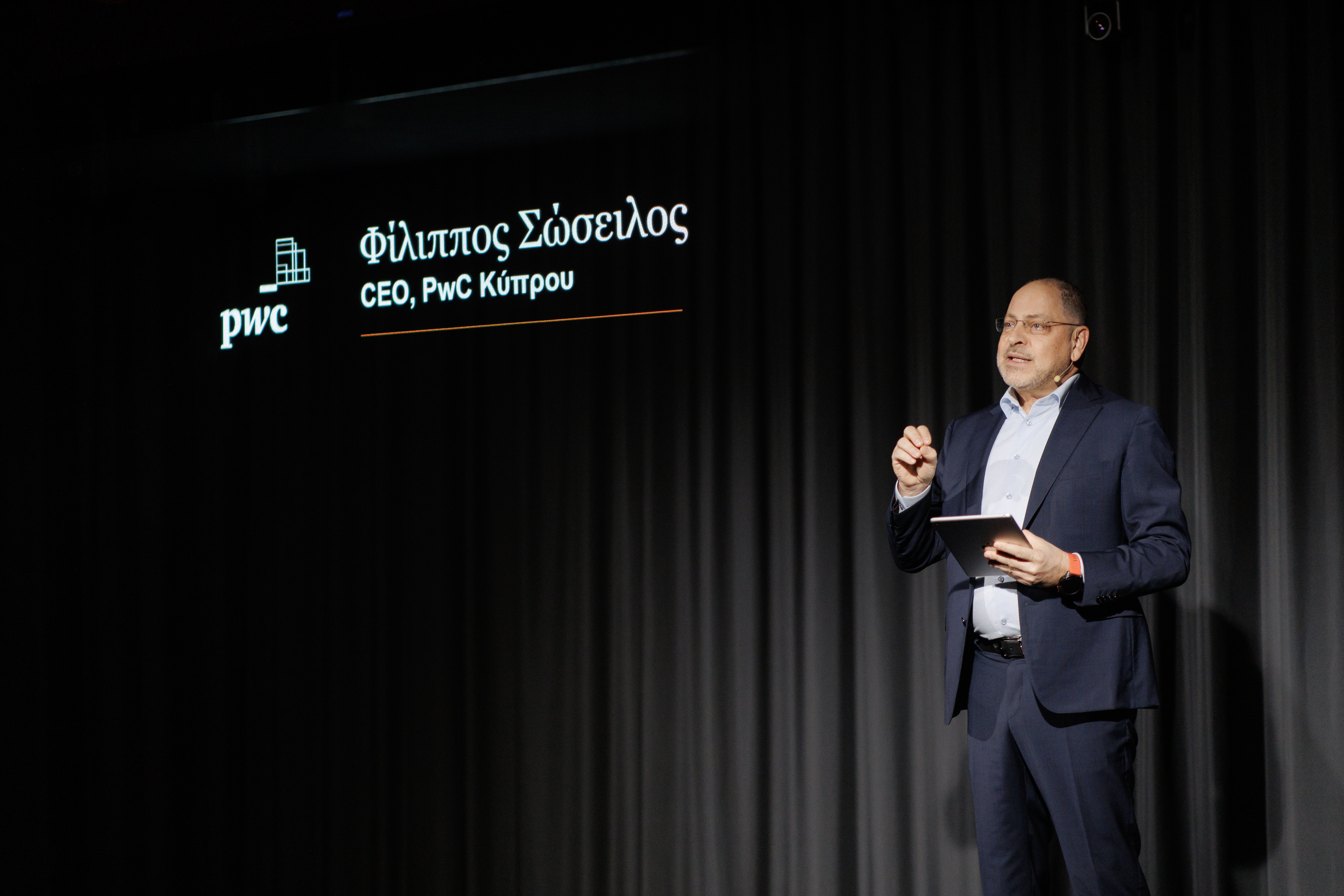PwC Cyprus this week released the findings of its 14th Annual CEO Survey, revealing a significant increase in business leaders’ confidence in the local economy.
The survey, presented at the PwC Experience Centre, is part of PwC’s Global CEO Survey, which was launched last month at the World Economic Forum in Davos.
While the results underscore optimism about economic growth, they also highlight ongoing concerns regarding business sustainability, workforce skills, and technological disruption.
According to the survey, 69 per cent of business leaders in Cyprus expressed confidence in the country’s economic growth prospects, a notable increase from 43 per cent last year.
“Business leaders in Cyprus face a volatile and complex landscape that requires continuous adaptation, focus in maintaining a state of readiness able to absorb the impact of inevitable surprises and strategic thinking to make the most of the opportunities,” said Philippos Soseilos, CEO of PwC Cyprus.
“Optimism for further growth is strong, yet the need for optimal utilisation of AI and rapid workforce upskilling remains critical,” he added.
“The businesses that will thrive are those that will successfully combine innovation, agility and strategic decision-making,” Soseilos continued.
“The pace of reinvention must be accelerated,” he stressed.
The survey also shed light on the growing role of artificial intelligence in business operations.
While 58 per cent of CEOs believe that Generative AI will improve work efficiency, only 27 per cent expect it to boost profitability in the next year.
Moreover, 41 per cent consider AI integration into technology platforms a priority over the next three years, yet just 29 per cent plan to incorporate AI into their human resources strategy, indicating a need for further skill development in the workforce.
While concerns over macroeconomic volatility have diminished, other challenges have taken centre stage.
The survey found that 36 per cent of CEOs are primarily worried about geopolitical conflicts, while 26 per cent cite the low availability of workers with key skills as a major challenge.
Additionally, 24 per cent view technological disruption as a significant concern.
Notably, cyber risks, which ranked among the top three concerns in last year’s survey, have not been identified as a primary issue for the next 12 months.
Business sustainability remains a pressing issue, with 50 per cent of Cyprus-based CEOs believing their companies will remain economically viable for less than ten years if they continue operating under current models. This marks an increase from 43 per cent last year.
The sentiment is mirrored among CEOs in the Eurozone (48 per cent) and globally (43 per cent), who also believe their businesses may struggle in the long term without substantial changes.
On the subject of climate-friendly investments, most CEOs (64 per cent) indicated that such initiatives over the past five years have had little to no impact on revenue from product and service sales.
This view is shared by 60 per cent of CEOs in the Eurozone and 56 per cent globally.
This suggests that sustainability efforts are yet to translate into tangible financial gains.






Click here to change your cookie preferences